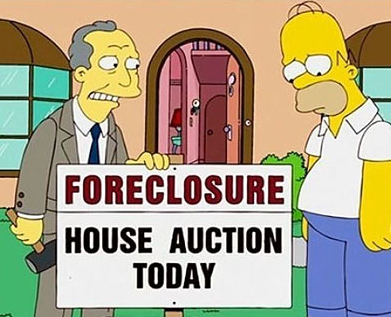Mystikal Featuring Lil Wayne And Fiend, "Paper Cuts" And The Amorality Of Art
Despite the fact that he has one of the most distinctive voices hip-hop has ever known, it’s hard to root for Mystikal. Recording for Master P’s No Limit Records, the Operation Desert Storm veteran played a major part in putting New Orleans rap on the map in the late ‘90s-remember “Here I Go,” or “It Ain’t My Fault” or “The Man Right Chea?” Then, even as No Limit went into decline, he rose to greater stardom with a string of hits produced by Neptunes that more effectively channeled the spirit of James Brown better than any rapper ever did before or since. “Shake Ya Ass” is one of those songs that have you remembering exactly where you were the first time you heard it. (Nowhere interesting in my case, just in a car, parked in front of a friend’s house in Massachusetts. But still, I remember it very well!) And “Danger,” and “Bouncin’ Back.” He really caught something special there for a while.
I went down to New Orleans to interview him for Vibe magazine in March, 2002. He was perfectly nice, but he travelled with a large crew of bodyguards that, while also perfectly nice, to me at least, boasted of having spent time in jail and threatened people in my presence. I was sad and horrified to learn, five months later, that he had been arrested, along with two of the bodyguards, and charged with the rape and extortion of his hair stylist-apparently enacted, and videotaped, as a form of vigilante justice because they suspected she had stolen money from him. He pleaded guilty to sexual battery the next year, and in 2004 was sentenced to six years in prison and you didn’t hear much more about him after that.
He got out this past January and is back to making music. And I’m surprised by how much I like this new song, “Paper Cuts.” The beat is sort of industrial (I think it’s supposed to sound like a money-counting machine… and it does) but an echoey underlying bass line gives it a very appealing warmth. And it features what is definitely the best verse I’ve heard from Lil Wayne in a good long time (I imagine it was recorded before he want to prison in March) and Mystikal’s old No Limit crony, Fiend, who sounds sweaty and hungry and energized. And Mystikal himself, with that great, gritty hoarseness in his voice (he’s the rap Rod Stewart, maybe?) leaping off the track like it used to, making up for lost time. “Feel like I haven’t dropped an album since the Beatles!” he says, and you can feel it, too.
It’s a lesson in the amorality of art, I guess. The artist does the work and the work now stands as a thing unto itself. It doesn’t matter what you think of the artist as a person or any of the other things he or she has ever done. If it moves you, it moves you. So even if it’s hard to root for this, I can’t help but dig it.
The Ad Spending Comeback
Call it the Citizens United stimulus: “Zenith says an influx of political ad spending and increases in spending by car, financial service and retail companies are helping improve the U.S. ad market more quickly than many had anticipated. Political ad spending on local television is 61% higher than in 2008, Zenith says.”
If You Lose Your iPhone You Will Have A Baby

For the latest example of Americans’ growing inability manage their own lives without the help of a trendy technological device, let’s meet Doug Wilson of Arkansas.
During the day, he tends to carry the iPhone 4 in his hand. Putting it in his pocket would be too risky, he said, because he might miss a photo opportunity — like that crazy “rat tail” hairdo he saw at a fast-food spot recently. (“I was like, ‘I’ve GOT to take a picture of this!’”)
And at night, access to this on-all-the-time gizmo is arguably more important than ever. First, there’s the dog. Wilson uses his phone’s LED camera flash to guide his steps as he takes Lucy, a bichon frise, outside. “I live in Arkansas, so I don’t want to step on a snake or anything,” he said.
Then there’s his wife, Ashlee, whom he accidentally impregnated one evening after forgetting to look at an iPod app that explains the details of the rhythm method.
“That’s how we got pregnant,” he said, “because I lost my [iPod Touch].”
Yes, you read that right. Americans are so dependent on digital organizers that they can no longer even fuck properly without them. You see that guy on the street with no pants? He’s not homeless, he just accidentally deleted the iPhone app that tells him how to dress himself. The Machines won’t need to engage in some titanic struggle to take over the world, they will just “forget” to remind us to perform basic life tasks until we all expire like neglected goldfish. I hope there is no “Time To Feed Your Baby” app yet, because hoo boy.
Photo by andrec from Flickr.
A Model of How Apple's Anti-Sexting Algorithm Will Work

If only it were operational yet, Apple could have saved Tiger Woods a lot of anguish.
Everyone Hates Obama
Paul Krugman thinks the Obama administration is doomed: “Stimulus, bank rescue, China, foreclosure; it applies all along. At each point there were arguments for not acting; but the cumulative effect has been drift, and a looming catastrophe in the midterms. Or to put it another way, the administration has never missed an opportunity to miss an opportunity. And soon there won’t be any more opportunities to miss.”
The Last Mortgage Robo-Barons

For people saddled with unsustainable mortgage payments, foreclosure proceedings come with a heavy emphasis on the “closure” part-since they mean eviction, devastated credit and near-permanent status as a financial pariah. But the purveyors of the fraudulent debt instruments behind the nation’s present foreclosure tsunami play, as always, by a different set of rules. For even in managing the wind-down of home loans poisoned by their own special brand of recklessly securitized debt, American banks continue hewing to the same fee-seeking, asset-stripping mode of enterprise that originally jeopardized the U.S. housing market, and much of the broader economy along with it. Now, as then, they’ve distorted the housing market with howlingly unprofessional and dubiously legal conduct. And now, as then, they’re pursuing short-term financial incentives that have nothing to do with the actual provisions in the contracts they’re legally obligated to honor.
As Ariana Eunjung Cha and Zachary A. Goldfarb explain in the Washington Post, the nation’s financial institutions are processing the greatest volume of home foreclosures in our history-now numbering more than 2 million properties, with another 2.3 million seriously delinquent — “through a mass production system of foreclosures that was set up to prioritize one thing over everything else: speed.”
[T]he problems plaguing the foreclosure process extend well beyond a few, low-ranking document processors who forged documents or failed to review foreclosure files even as they signed off on them. In fact, virtually everyone involved — loan servicers, law firms, document processing companies and others — made more money as they evicted more borrowers from their homes, creating a system that was vulnerable to error and difficult for homeowners to challenge.
The unrivaled king of the great foreclosure speed-up is Florida attorney David J. Stern, whose law firm processed 70,000 Broward Country foreclosures in 2009 alone. Mostly, he moves through repo proceedings for Fannie Mae and Freddie Mac-together with bailed-out mortgage giants like Bank of America, Wells Fargo and Citigroup. According to a report from Mother Jones writer Andy Kroll, foreclosure mills like the Stern shop command flat fees, of around $1,300 per foreclosed property, rather than the hourly fees law firms normally charge. The result is a premium on rapidfire processing-usually by a reserve army of temp workers who sign off on forbidding stacks of legal and real estate documents that few have been trained to interpret-and none, effectively, have the time to review in any meaningful fashion.
Indeed, long before the mortgage fiasco had fully metastasized in 2008, foreclosure mills were drawing legal reproofs, Kroll notes, with a New Jersey firm processing a battery of foreclosures over the signature of an employee who had left the outfit a year earlier, a Texas concern submitting computer-generated documents that a federal judge called “gibberish” and “erroneous,” and a Florida default operation raking in fees by, in the words of another federal judge, “filing any old pleading without undertaking any investigation into its accuracy is perfectly acceptable practice.”
But there were plenty of similar warning signs preliminary to the 2008 meltdown as well, with shady national mortgage operations constructing subprime loans that actually had mortgage-holders kiting balloon payments on their interest, all but guaranteeing the eventual doom of their loan contract. But in both that crisis and today’s foreclosure fiasco, the lure of quick-turnaround fees simply proved too powerful to draw much sustained critical scrutiny. During a deposition in a suit against the Stern firm, Cha and Goldfarb report, senior paralegal Tammie Lou Kapusta described the work routine thusly: “The girls would come out on the floor not knowing what they were doing. Mortgages would get placed in different files. They would get thrown out. There was just no real organization when it came to the original documents.”
As it happens, the latest wave of disclosures about the foreclosure mess coincided with former Countrywide CEO Angelo Mozilo’s $67.5 million settlement of a Securities and Exchange Commission lawsuit accusing the bottom-feeding mortgage firm of fraud. The agreement stipulates that Mozilo can never again serve as a corporate officer-something of an academic stricture, since the original S.E.C. complaint furnishes plenty of detail showing his unfitness to manage much of anything beyond a sock drawer. In one internal email from April 2006, he offered this frank assessment of the company’s equity-destroying adjustable-rate mortgage deals: “In all my years in the business, I have never seen a more toxic product,” he wrote to a Countrywide financial officer. “With real estate values coming down… the product will become increasingly worse.” And in a September 2006 email, he fleshed out that dour estimation further: “The bottom line is that we are flying blind on how these loans will perform in a stressed environment of higher unemployment, reduced values and slowing home sales.” The day afterward, the S.E.C. complaint notes, Mozilo approved a massive sale of his own Countrywide shares-part of an ongoing sell-off that netted him $260 million between 2005 and 2007.
So to recap: Even after his SEC penalty, Mozilo walks away with something just shy of $200 million in well timed stock proceeds alone. The note-holders seduced by the stirring vision of risk-free universal homeownership and now getting the free market’s bum’s rush, meanwhile, can’t count on even any meaningful semblance of due process. And that being the case, most of them dare not dream of a rationally restructured loan arrangement that might start to undo some of the fathomlessly cynical ruin that a corps of Mozilo-esque financial cretins have left at their doorstep. This de facto social compact was neatly summed up in the Legal Aid case against GMAC-yet another federal bailout recipient farming out its repo workload to unscrupulous foreclosure mills-that brought the whole sordid business to light in the first place. As New York Times reporter David Streitfeld writes, that challenge involved a fight to keep the holder of a $75,000 mortgage-a laid-off employment counselor, fittingly enough-who consulted with a Maine legal aid firm. There, as luck would have it, her case caught the attention of a onetime bank attorney named Brian Cox-who suffered a debilitating depression and divorce from his own tour in the foreclosure trade, and had recuperated by building houses and switching sides as a pro bono volunteer in the housing wars. With a little digging, Cox established that the signatory on all the documents, a “limited signing officer” named Jeffrey Stephan, moved through foreclosures for GMAC at the forbidding clip of 400 a day. As Cox summed things up in a court filing:
When Stephan says in an affidavit that he has personal knowledge of the facts stated in his affidavits, he doesn’t. When he says that he has custody and control of the loan documents, he doesn’t. When he says that he is attaching ‘a true and accurate’ copy of a note or a mortgage, he has no idea if that is so, because he does not look at the exhibits. When he makes any other statement of fact, he has no idea if it is true. When the notary says that Stephan appeared before him or her, he didn’t.
Such is the face of the quest for economic justice in our age. In the face of such outrages, we could do a lot worse than remember Samuel Johnson’s crisp assessment of the inequities of the British debtor prison: “Those who made the laws have apparently supposed, that every deficiency of payment is a crime of the debtor. But the truth is, that the creditor always shares the act, and often more than shares the guilt, of improper trust… and there is no reason, why one should punish the other for a contract in which both concurred.”
By the way, I almost forgot: Angelo Mozilo’s legal fees were paid by Bank of America, which bought out the toxic Countryside operation-with some conspicuous assists from well-padded lawmakers-in 2008.
Chris Lehmann’s book, Rich People Things, is available now! He even made you a slideshow about things rich people like.
Blogger Arrested at Public Event by Senate Candidate Joe Miller's Private Security
“The editor of the Alaska Dispatch website was arrested by U.S. Senate candidate Joe Miller’s private security guards Sunday as the editor attempted to interview Miller at the end of a public event in an Anchorage school.” He was then released when the real police showed up, because, Jesus Christ!
Why Magazines Get Redesigned
How change happens: “Here’s the bald truth about re-designs: editors and art directors, unless their publication is flailing and desperately needs something-anything-to re-ignite its circulation numbers, often get bored looking at the same layout week after week, or month after month, whatever the case may be. Re-designing a newspaper or magazine is a lot of fun, actually, for those on the inside, especially the art department, which gets a break from the routine and fantasizes about maybe 100 different alterations, most of which are shot down by a less graphically invested editor.”
Please Calmly Retweet This To Help The Economy

Can the general mood on Twitter provide a sense of how the stock market will perform? Science says yes! “An analysis of almost 10 million tweets from 2008 shows how they can be used to predict stock market movements up to 6 days in advance.” Indiana University’s Johan Bollen and fellow researchers decided to track the Twitterverse using an algorithm” called the Google-Profile of Mood States (GPOMS), [which] records the level of six states: happiness, kindness, alertness, sureness, vitality and calmness.”
One algorithm, called the Google-Profile of Mood States (GPOMS), records the level of six states: happiness, kindness, alertness, sureness, vitality and calmness.
The question that Bollen and co ask is whether any of these states correlates with stock market prices. After all, they say, it is not entirely beyond credence that the rise and fall of stock market prices is influenced by the public mood.
So these guys took 9.7 million tweets posted by 2.7 million tweeters between March and December 2008 and looked for correlations between the GPOMS indices and whether Dow Jones Industrial Average rose of fell each day.
Their extraordinary conclusion is that there really is a correlation between the Dow Jones Industrial Average and one of the GPOMS indices — calmness.
There’s a lot of Sciencey stuff in here, but I think the lesson is clear: We need to stay very calm when we tweet, and then the stock market will do well and companies will start hiring again and the credit spigot will reopen and we can all get on to whatever the next boom is. We can tweet our way out of recession. Let’s do it. (I would have used a couple of exclamation marks there but I want to appear serene.)
